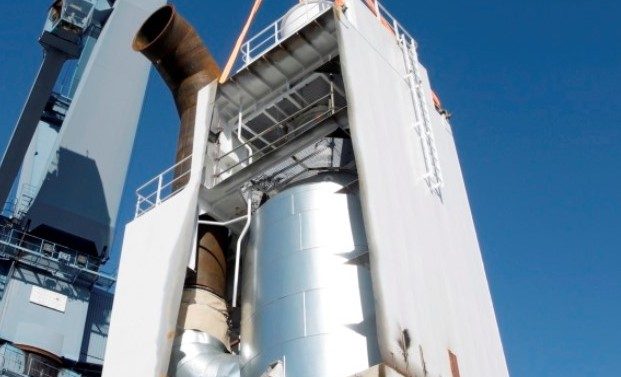Call for Baltic scrubber ban

Yesterday Splash carried studies from NASA suggesting the global sulphur cap had improved atmospheric conditions. However, the controversial International Maritime Organization (IMO) regulation’s effect on the sea remains a moot point.
New research from Chalmers University of Technology in Sweden suggests the discharge water from ships’ exhaust gas treatment systems, so-called scrubbers, is responsible for up to 9% of certain emissions of carcinogenic and environmentally harmful substances in the Baltic Sea, which is considerably more than was previously known. Furthermore, the number of ships equipped with scrubbers have more than tripled since the study was carried out.
The researchers’ study is unique in its kind and was commissioned by the Swedish Transport Agency and the Swedish Agency for Marine and Water Management to investigate the environmental impact from scrubbers in the Baltic Sea, compared to other sources of environmental contaminants.
“For many years, we’ve flagged the fact that scrubbers account for disproportionately large emissions of hazardous and acidifying substances into the marine environment. In spite of this message, we have seen a significant increase in the number of scrubber installations as it is economically beneficial for the shipowner. Therefore, it is very important that authorities and decision-makers now react and implement measures to reduce shipping’s emissions and impact on the marine environment,” said professor Ida-Maja Hassellöv, one of the study’s researchers.
In the Chalmers study, published in the Marine Pollution Bulletin, the researchers found that more than 200m cu m of environmentally hazardous scrubber water were discharged from ships that used exhaust gas cleaning systems in the Baltic Sea – in just one year. The study showed that scrubber washwater accounts for up to 9% of the emissions of certain cancer-causing polycyclic aromatic hydrocarbons (PAHs) into the Baltic Sea. The study also revealed that ships painted with copper-based antifouling paints account for a third of the total supply of copper to the Baltic Sea. Copper in antifouling paints is already a known environmental problem as the metal cannot be degraded in the environment and therefore leads to high levels in water, sediment, and soil. But exactly how much of the load of copper boat and ship traffic accounts for, has previously been unknown. Also, the cancer-causing PAHs are difficult to degrade and can spread widely in the environment before breaking down.
“Our results show that shipping accounts for a significant proportion of hazardous substances to the Baltic Sea, above all through antifouling paints and discharge of wash water from open loop scrubbers. PAHs are highly toxic to both humans and aquatic organisms as they are, among other things, carcinogenic. Worth noting is that the study’s data was collected in 2018, and at that time there were approximately 180 ships with scrubbers in the Baltic Sea. Since then, these ships have increased significantly and in 2021 there were almost 600 ships equipped with scrubbers in the Baltic Sea,” said Erik Ytreberg, associate professor at Chalmers and the lead author of the scientific study.
The new research results have led the Swedish Transport Agency and the Swedish Agency for Marine and Water Management to propose a ban on the discharge of scrubber water into the internal waters of the Baltic Sea. If the Swedish politicians follow the line of the researchers and the authorities, Sweden will be the first country in the Nordic region to introduce the ban.
Today, scrubbers are installed on over 4,700 ships around the world, far more than in 2018 when data for this Swedish study was taken. In the Baltic Sea area, only Germany already applies the same legislation, even though several other countries in Europe regulate scrubber discharges in their ports.
Clarksons Research noted in a recent green shipping update that the scrubber retrofitting peak has passed with just 20 ships being retrofitted now per month, down from 200 in 2020.
Scrubber discharge bans continue to be rolled out in many corners of the globe with politicians increasingly concerned about their harmful impact.
However, the introduction of the global sulphur cap – also known as IMO 2020 – does appear to have had a beneficial effect in the atmosphere.
A newly published study from American space agency NASA has found that so-called ship track clouds dropped dramatically in 2020, the first year of the implementation of the fuel regulations that saw sulphur content slashed from 3.5% to 0.5% for the majority of the global fleet not using scrubbers.

This study underlines the cynical nature of the shipping industry to a large extent. If we can’t pollute the sky anymore, we will just dump it into the sea. Only a global ban on open loop scrubbers seems to be the only solution. A proposal to do so will of course be met by complaints of shipowners and dozens of maritime layers will be ready to defend the case of the shipowners, delaying urgently needed new measures by a much longer period than the sea is able to cope with.